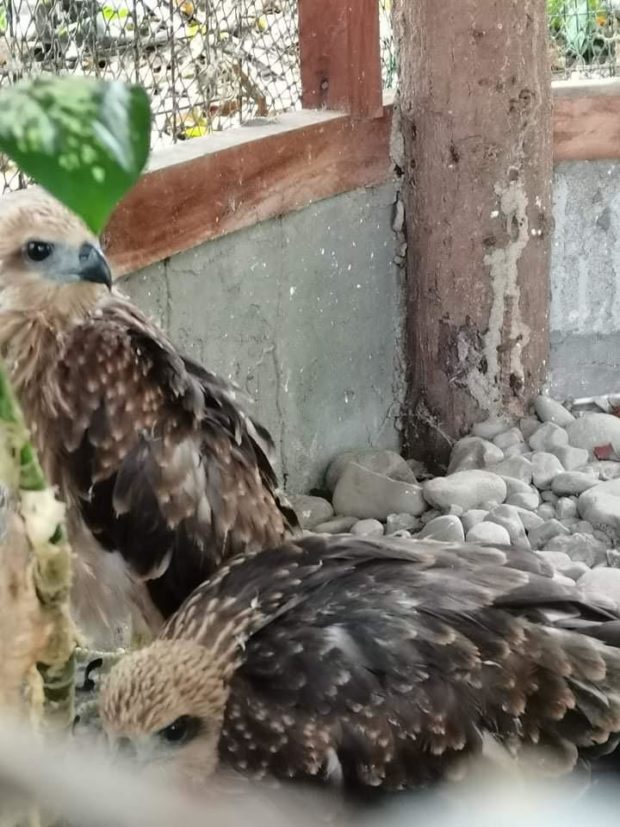
These are juvenile brahminy kites which members of the Oriental Mindoro Maritime Police confiscated from wildlife smugglers. Photo from Oriental Mindoro Maritime Police station
MANILA, Philippines — Maritime police and environment officials of Oriental Mindoro rescued 18 wild birds from captivity in an entrapment and rescue operation and filed charges against an online trader for possessing and selling regulated wildlife.
Among the wild birds rescued were two juvenile brahminy kites, a species of red-backed sea eagles whose population is dwindling, said Police Lt. Angelo Astrero, chief of the Oriental Mindoro Maritime Police Station.
Astrero said an informant reported that wild birds were being illegally traded for P25,000 each by an online seller identified only as alias Bunz Ferriol. Police Col. Arnold Abad, regional chief, ordered an entrapment and rescue operation accompanied by personnel of the Community Environment and Natural Resources Office of Roxas, Oriental Mindoro.
On April 19, the team tracked down the seller to Barangay Libtong, where he was found to have in his possession the 18 wild birds, after he agreed to meet up with policemen who posed as buyers.
Aside from the two young brahminy kites, police also seized four Eurasian collared doves, one Eurasian white pigeon, two thick-billed green pigeons, two red turtle doves, one whistling green pigeon, one metallic pigeon, three white-eared doves, and two quails.
Astrero said most of the birds were not categorized as threatened but they are protected wildlife species which cannot be used for commercial or personal purposes without the necessary permit, registration or authority from Department of Environment and Natural Resources.
The seller was charged with violation of the Wildlife Resources Conservation and Protection Act (RA 9147). The rescued birds were brought to CENRO Mini forest in barangay San Mariano in Roxas town for rehabilitation before being released and returned to the wild.
Brahminy kites are tropical birds of prey found mostly in Asia and northern Australia. It’s local name is banog, which in Cebuano means “kite.” These raptors, distinct for their white head and chest and reddish back, are protected because their population is dwindling due to loss of habitat. — Artemio T. Engracia